Wei wei
DEFT-LLM: Disentangled Expert Feature Tuning for Micro-Expression Recognition
Nov 14, 2025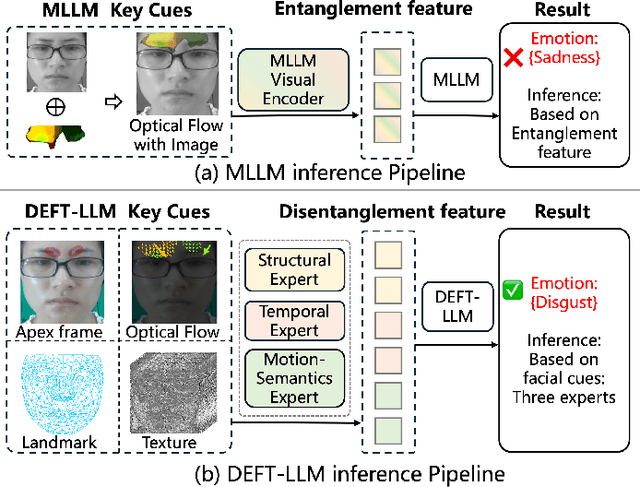
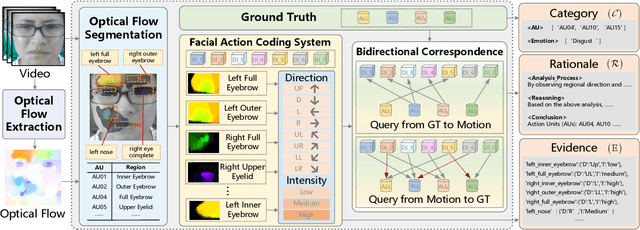
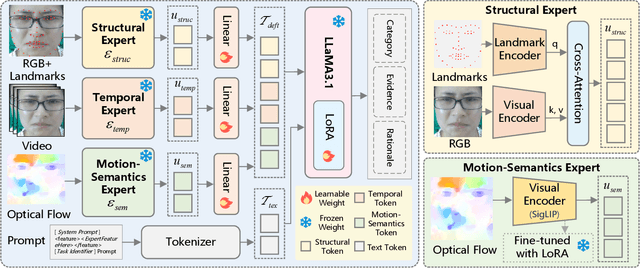
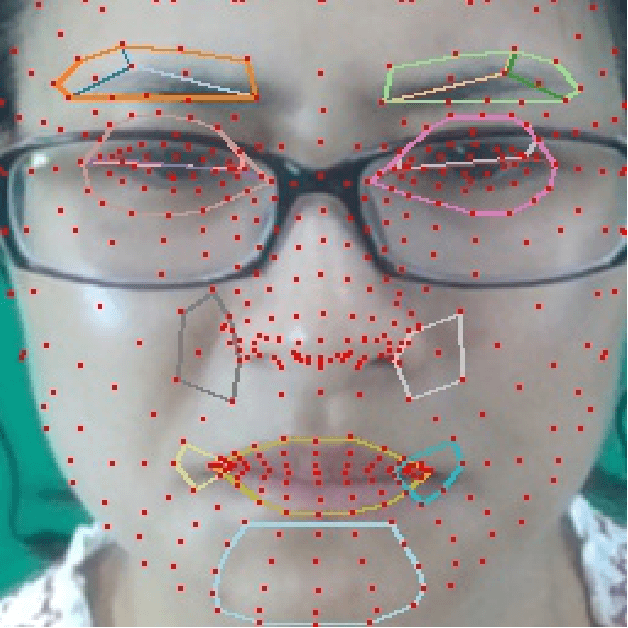
Abstract:Micro expression recognition (MER) is crucial for inferring genuine emotion. Applying a multimodal large language model (MLLM) to this task enables spatio-temporal analysis of facial motion and provides interpretable descriptions. However, there are still two core challenges: (1) The entanglement of static appearance and dynamic motion cues prevents the model from focusing on subtle motion; (2) Textual labels in existing MER datasets do not fully correspond to underlying facial muscle movements, creating a semantic gap between text supervision and physical motion. To address these issues, we propose DEFT-LLM, which achieves motion semantic alignment by multi-expert disentanglement. We first introduce Uni-MER, a motion-driven instruction dataset designed to align text with local facial motion. Its construction leverages dual constraints from optical flow and Action Unit (AU) labels to ensure spatio-temporal consistency and reasonable correspondence to the movements. We then design an architecture with three experts to decouple facial dynamics into independent and interpretable representations (structure, dynamic textures, and motion-semantics). By integrating the instruction-aligned knowledge from Uni-MER into DEFT-LLM, our method injects effective physical priors for micro expressions while also leveraging the cross modal reasoning ability of large language models, thus enabling precise capture of subtle emotional cues. Experiments on multiple challenging MER benchmarks demonstrate state-of-the-art performance, as well as a particular advantage in interpretable modeling of local facial motion.
Local-Global Pseudo-label Correction for Source-free Domain Adaptive Medical Image Segmentation
Aug 28, 2023Abstract:Domain shift is a commonly encountered issue in medical imaging solutions, primarily caused by variations in imaging devices and data sources. To mitigate this problem, unsupervised domain adaptation techniques have been employed. However, concerns regarding patient privacy and potential degradation of image quality have led to an increased focus on source-free domain adaptation. In this study, we address the issue of false labels in self-training based source-free domain adaptive medical image segmentation methods. To correct erroneous pseudo-labels, we propose a novel approach called the local-global pseudo-label correction (LGDA) method for source-free domain adaptive medical image segmentation. Our method consists of two components: An offline local context-based pseudo-label correction method that utilizes local context similarity in image space. And an online global pseudo-label correction method based on class prototypes, which corrects erroneously predicted pseudo-labels by considering the relative distance between pixel-wise feature vectors and prototype vectors. We evaluate the performance of our method on three benchmark fundus image datasets for optic disc and cup segmentation. Our method achieves superior performance compared to the state-of-the-art approaches, even without using of any source data.
Gradient-guided Unsupervised Text Style Transfer via Contrastive Learning
Jan 23, 2022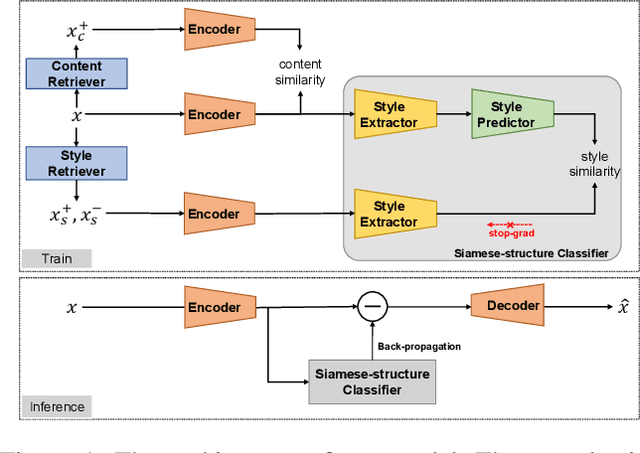


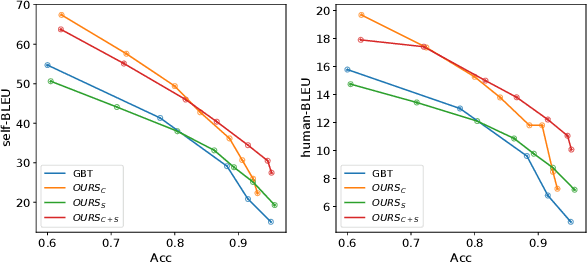
Abstract:Text style transfer is a challenging text generation problem, which aims at altering the style of a given sentence to a target one while keeping its content unchanged. Since there is a natural scarcity of parallel datasets, recent works mainly focus on solving the problem in an unsupervised manner. However, previous gradient-based works generally suffer from the deficiencies as follows, namely: (1) Content migration. Previous approaches lack explicit modeling of content invariance and are thus susceptible to content shift between the original sentence and the transferred one. (2) Style misclassification. A natural drawback of the gradient-guided approaches is that the inference process is homogeneous with a line of adversarial attack, making latent optimization easily becomes an attack to the classifier due to misclassification. This leads to difficulties in achieving high transfer accuracy. To address the problems, we propose a novel gradient-guided model through a contrastive paradigm for text style transfer, to explicitly gather similar semantic sentences, and to design a siamese-structure based style classifier for alleviating such two issues, respectively. Experiments on two datasets show the effectiveness of our proposed approach, as compared to the state-of-the-arts.
 Add to Chrome
Add to Chrome Add to Firefox
Add to Firefox Add to Edge
Add to Edge